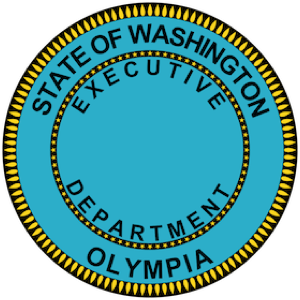The Washington State Office of the Governor (WA Governor) hosts public bill signing ceremonies in response to the passage of legislation by the Washington State Legislature.
Bill Action
- SB 5123 - "Concerning the employment of individuals who lawfully consume cannabis."
- SB 5367 - "Concerning the regulation of products containing THC."
